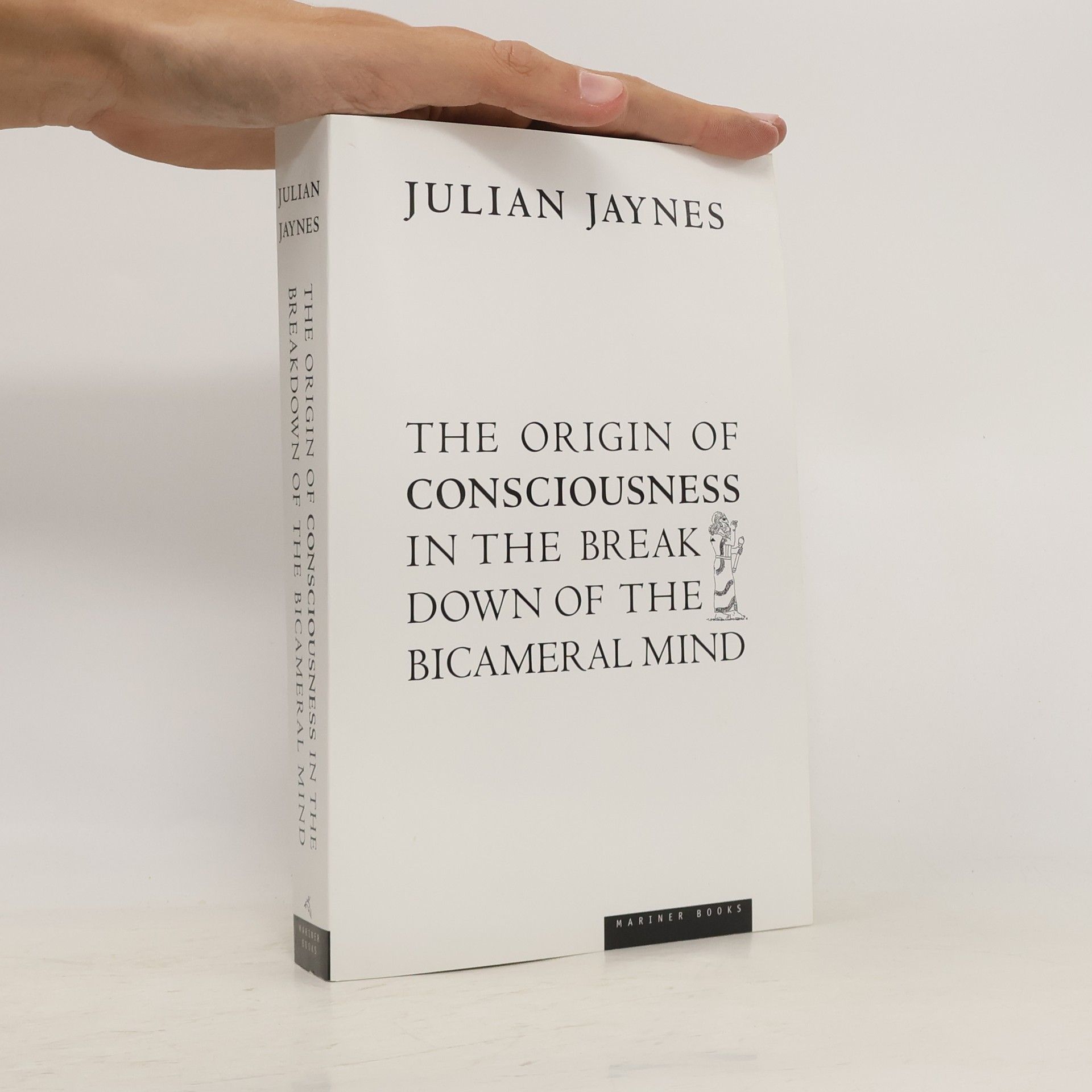Princeton University psychologist Julian Jaynes's revolutionary theory on the origin of consciousness or the "modern mind" remains as relevant and thought-provoking as when it was first proposed. Supported by recent discoveries in neuroscience, Jaynes's ideas force us to rethink conventional views of human history and psychology, and have profound implications for many aspects of modern life. Included in this volume are rare and never before seen articles, lectures, interviews, and in-depth discussions that both clear up misconceptions as well as extend Jaynes's theory into new areas such as the nature of the self, dreams, emotions, art, music, therapy, and the consequences and future of consciousness. **Expanded to include a new, previously unpublished wide-ranging 30-page interview with Julian Jaynes.**
Julian Jaynes Book order (chronological)
Julian Jaynes, an American psychologist, explored the nature of consciousness, proposing a radical theory about ancient human experience. He argued that people in ancient times lacked consciousness as we understand it today, defining it narrowly as an awareness of awareness. This meta-awareness, he contended, is fundamentally tied to linguistic cognition, distinguishing it from simpler forms of thought found in other species.


The Origin of Consciousness in the Breakdown of the Bicameral Mind
- 512 pages
- 18 hours of reading
What is human consciousness, where did it come from, and how does it determine who we are and how we live in the world? At the heart of this book is the theory that human consciousness did not develop over time--that, in fact, ancient peoples from mesopotamia to Peru did not "think" as we do and therefore were not conscious. Drawing on laboratory studies of the brain and clos examination of archaeological evidence, the author concludes that consciousness is not a product of evolution but of catastrophic events in our own history, events that occurred as recently as three thousand years ago.